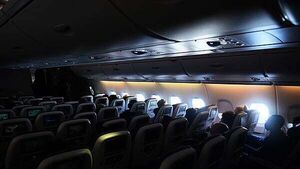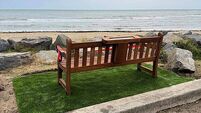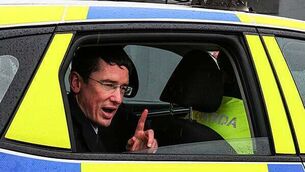Airline ordered to pay €7,500 to passenger refused a seat in emergency exit row

Seán McCárthaigh
An airline has been ordered to pay €7,500 in compensation to a passenger who was refused to be allowed to take his seat in an emergency exit row that he had specifically booked because of a disability.
The Workplace Relations Commission (WRC) ruled that the airline had discriminated against the man by failing to provide him with reasonable accommodation, as well as harassing him because of his condition.
The WRC also ordered the airline to establish procedures and take any steps necessary to ascertain the capacity and mobility of travellers seeking Special Category Passenger status before declining a booking in any part of an aircraft.
The passenger, who is autistic and wanted an emergency row seat to accommodate a sleep apnoea device, claimed the airline had breached the Equal Status Act by discriminating against him on grounds of his disability.
The WRC ruled that the parties should not be identified because of the complainant’s disability.
The airline maintained that passengers with a disability are not permitted to travel in seats at an emergency exit.
However, the WRC ruled that the airline’s refusal to seat the complainant in his chosen seat was not well grounded in a correct interpretation of the regulations.
WRC adjudication officer, Pat Brady, said the regulations do not provide “a blanket ban” on seating any person classified as a special category passenger in an emergency exit row unless their disability or lack of mobility posed a reasonable impediment to the safe evacuation of the aircraft.
Mr Brady said it was not an unreasonable burden for an airline to make such an assessment of such a passenger.
The passenger had notified the airline while booking a return flight from Dublin to London that he required special assistance and wanted a seat with extra legroom at the emergency exit as he uses a sleep apnoea machine.
The WRC heard that he received the requested seat as he had booked on the outward journey without issue on March 18th, 2024.
However, he was told when checking in his baggage for the return flight on March 4th, 2024 that his seat had been changed due to his disability.
He told the WRC that he explained to airline staff at the boarding gate that he is employed in a demanding career and would have no problem assisting people off the plane in an emergency
The man complained that he found it humiliating and degrading to have to discuss his disability in front of a queue of other passengers.
The WRC heard that he was placed in a seat with his legs pinned up against the seats in front of him for the flight.
The airline maintained that cabin crew on the outward flight had not been aware of his status.
It claimed the complainant had registered himself as a person with a disability and therefore came within the remit of the regulations.
The airline argued that it would be unreasonable for cabin crew to have to make an assessment on the type of disability a passenger has or where on a spectrum their disability fell on a case-by-case basis.
Although Mr Brady observed that the airline understandably relied on its obligations to observe strict compliance with safety legislation, he said it had to do "more than this" when it could result in potential discrimination.
While it might be reasonable that cabin crew should not have to make the assessment, he claimed the responsibility simply passes back to the airline.
The WRC official pointed out airline staff already do that in relation to security and much fewer people who seek special assistance could be asked of the nature of any disability they had.
Mr Brady said the clear purpose of the regulations was to prevent a passenger who might impede an emergency exit from being seated there.
He noted the complainant, who is a teacher in a third-level institution, does not have a physical or intellectual disability that affects his mobility or that would impede cabin crew in an emergency situation.
Mr Brady said his only requirement was to have enough room for his sleep apnoea device.
The WRC official said a full reading of the regulations makes it clear that the critical criterion is mobility and its impact on safety in an emergency.
Mr Brady said there had been a “shambles” at the boarding gate and thereafter on board the return flight.
Given the airline’s level of knowledge of the passenger’s condition at that stage, Mr Brady ruled it had failed to provide the complainant with reasonable accommodation and constituted harassment.
The WRC rejected a separate claim by the passenger that he had been victimised by being moved to another seat because he had accused the airline of discrimination.





